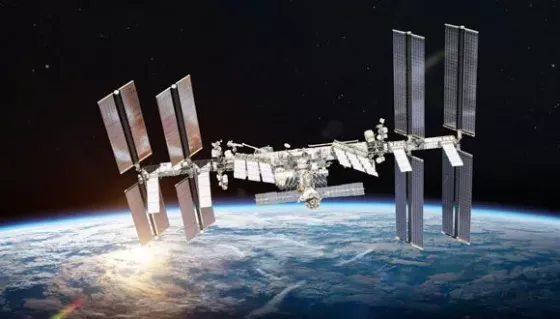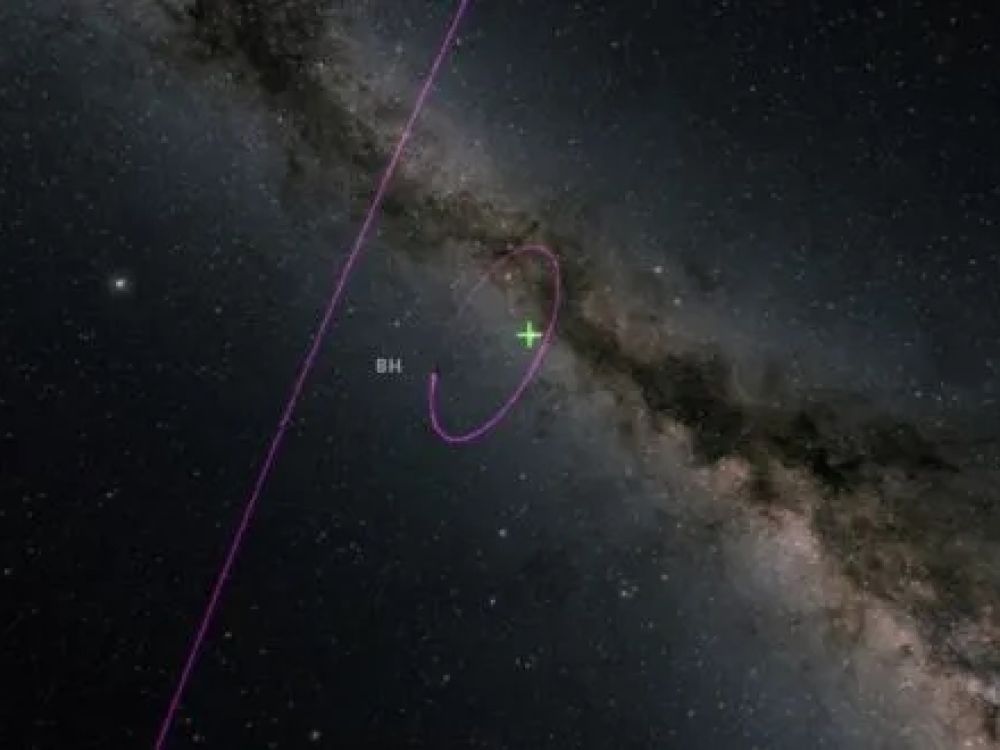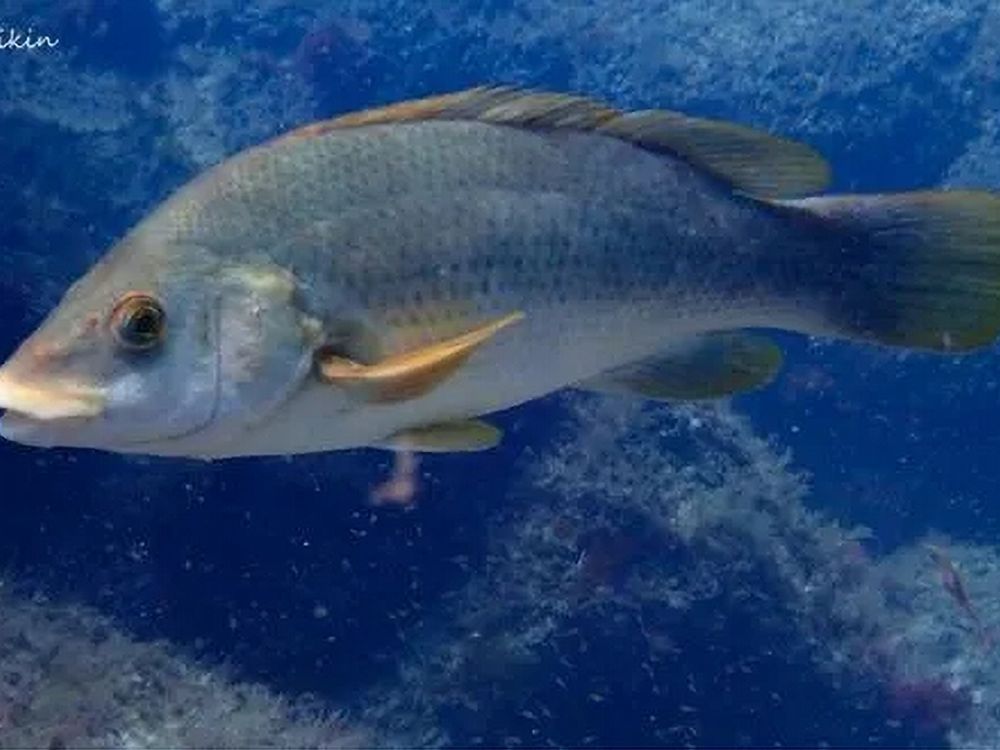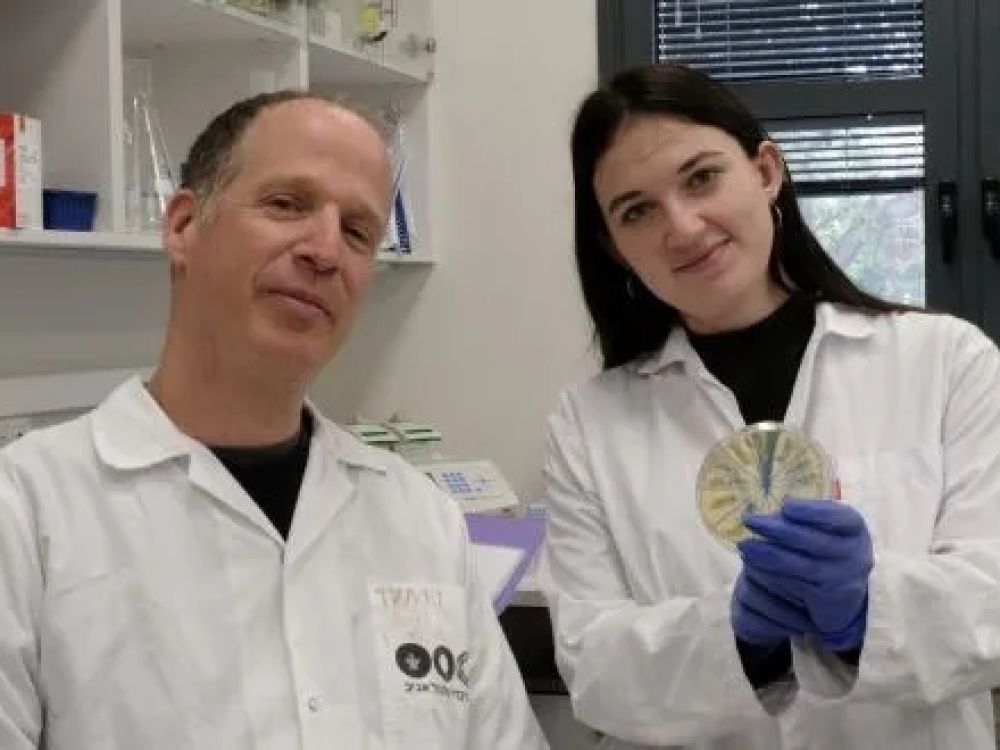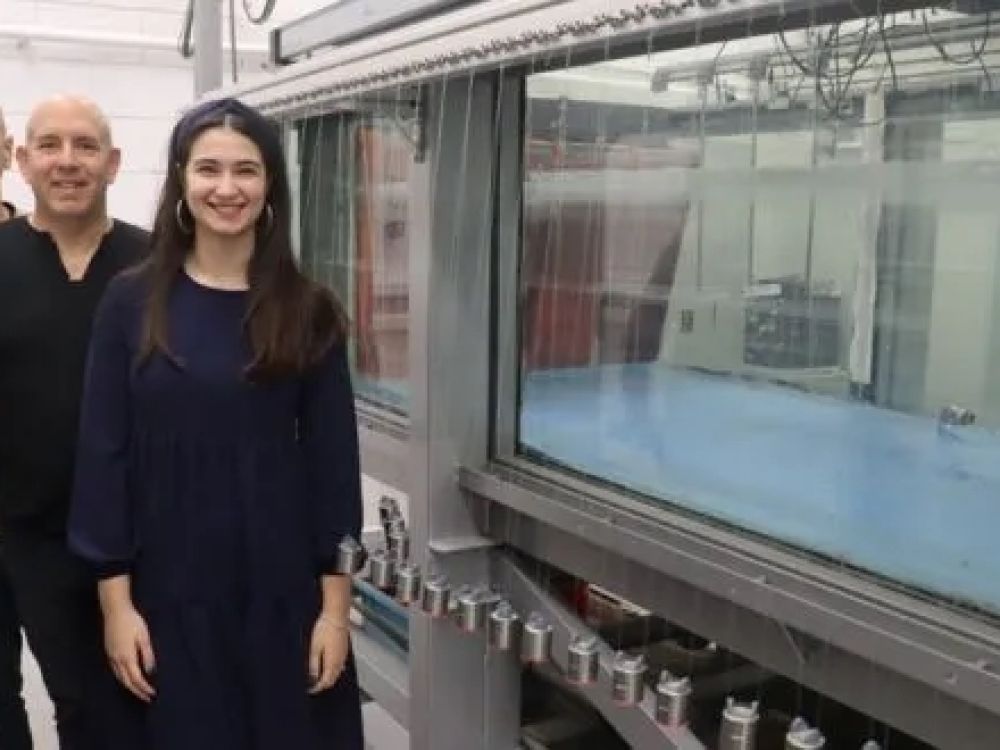If pursuing the unknown in space is on your bucket list, you can take comfort in knowing that TAU researchers recently conducted a unique experiment at the International Space Station to test genetic diagnosis under microgravity conditions. The researchers launched a kit together with Israeli astronaut Eytan Stibbe to space and proved that an existing technology based on a bacterial immune system against viruses, ‘CRISPR’, can be used to identify viruses and bacteria infecting crew members during space missions.
The study was led by Dr. Dudu Burstein from the Shmunis School of Biomedicine and Cancer Research, Tel Aviv University and Dr. Gur Pines from the Volcani Institute. The experiment was conducted by Stibbe as part of the “Rakia” mission in April, under the leadership of the Ramon Foundation and the Israel Space Agency.
Suited for Astronauts
CRISPR systems are the immune systems of bacteria from viruses. Bacteria use the CRISPR-Cas systems as a sort of molecular ‘search engine’ to locate viral sequences and cleave them to disable viruses.
As part of their scientific vision, the researchers hypothesized that genetic diagnostics using this method, which requires minimal and easily operated equipment, could be suitable for long space missions: “Conditions in space are extremely problematic,” explains Burstein. “Treatment methods are limited, so it is essential to identify pathogens [= a microorganism that can cause disease] in a rapid, reliable, and straightforward method.” The method stands in contrast to tests like PCR (which we are now all familiar with due to Covid-19), which Burstein notes require trained personnel and relatively complex equipment.”
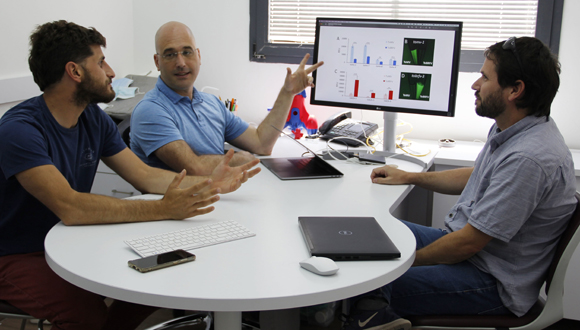
Researchers discussing the experimental design. From left to right: Dan Alon, Dr. David Burstein, Dr. Gur Pines (Photo: Ella Rannon)
Burstein outlines the process: “First, the DNA is amplified: each targeted DNA molecule is repeatedly duplicated many times. Then the CRISPR-Cas goes into action: If it identifies the target DNA, it activates a fluorescent molecular marker. The fluorescence lets us know whether the bacteria or viruses of interest are indeed present in the sample. This whole process can be conducted in one tiny test tube, so it is well suited for the astronauts’ needs.”
Zero Gravity? No problem!
Dr. Burstein describes the preparation for the space experiment: “Doctoral student Dan Alon and Dr. Karin Mittelman planned the experiment in detail and conducted it countless times in the lab under various conditions. After reaching the desired result, they prepared a kit, including the CRISPR-Cas system and the other components required for detection. Eventually, the kit was launched with Eytan Stibbe to the International Space Station.”
The experiments conducted by Stibbe were very successful, and proved that it is indeed possible to perform precise and sensitive CRISPR-based diagnosis – even in an environment with virtually no gravity.
What now? “This is the first step towards the simple and rapid diagnosis of diseases and pathogens on space missions,” says Burstein, adding that there is still some work to do on the next stages, including, “simple extraction of DNA from samples, making the system more efficient, so that it will be able to test a variety of organisms in one test tube, and diagnosis of more complex samples.”
“It was inspiring to see our test kit in Eytan’s hands at the Space Station, and we’re even more excited by the possibility that such kits will help future astronauts on their extraterrestrial missions,” he concludes.
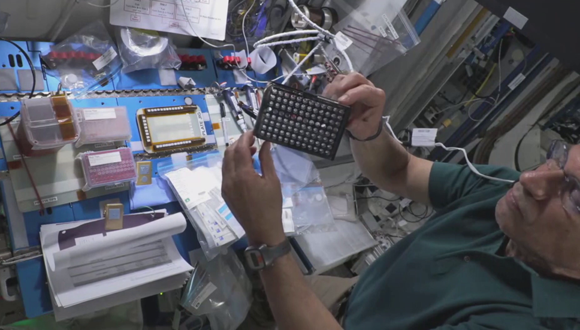
Eytan Stibbe executing the experiment on the International Space Station (Photo: the Ramon Foundation and the Israel Space Agency)
Featured image: International space station on orbit of planet Earth

